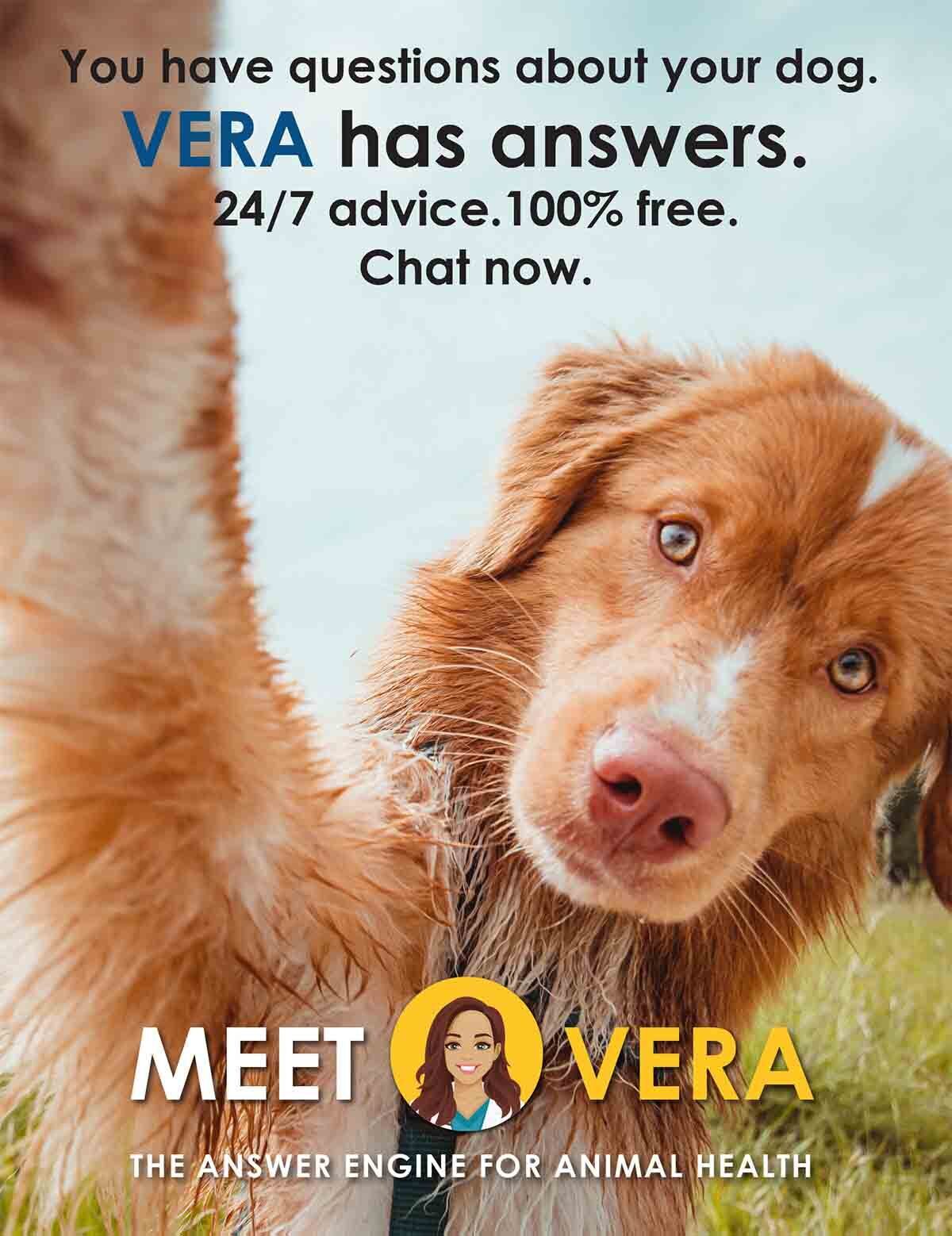Written by: Alexa Waltz
Congratulations on the new addition to the family in the form of a cuddly fuzzball puppy! Also, kudos for researching what he needs from the get-go to live a long and healthy life! Whether you’re a first-time puppy parent or not, you are willing to do anything to keep your canine companion happy and healthy, from ensuring they’re vaccinated to creating a pet emergency fund. Keeping puppies healthy and ensuring that we, as pet parents, pave the way for a healthy adult life starts when they are very young through puppy care.
Keeping up with a dog vaccination schedule can ensure your dog is staying the healthiest, whether it’s with core puppy vaccinations or non core vaccines. Vaccinating can make deadly diseases preventable diseases. Here’s a breakdown of some dog and puppy vaccines and when they occur on a vaccination schedule for the best pet health possible.
What Vaccines Do Dogs Need?
Your puppy’s first trip to the vet should occur around 8 weeks of age, or when you first bring them home. This visit will include a full physical examination and also likely involve a discussion on when to start an important part of preventive care: vaccinations. This initial vet visit is followed by a series of additional appointments spaced out by several weeks, until the vaccine series is complete and your pup is ready to face the big wide world!
For dogs, vaccines have been available for decades to combat some very common life-threatening diseases that affect dogs all around the country and even around the world! Dog vaccines are available to protect against other contagious diseases that are localized to certain geographic areas and which affect dogs with specific lifestyles. Your veterinarian will discuss what vaccines are recommended for your individual precious puppy based.
For these reasons, vaccines are grouped into “core vaccines” and “non-core vaccines” according to the American Animal Hospital Association (AAHA). Core vaccines are vaccines recommended for ALL dogs, since the diseases they prevent are ubiquitous in our communities and environment. Non-core vaccines may be recommended by your veterinarian based on which diseases are endemic to your area, and the activities and lifestyle you plan on having with your pup.
It is important that vaccines are given at a certain time in a puppy’s life, and that the actual vaccine itself is handled and administered correctly, too. It is safest to defer to your family veterinarian for the best advice on what your pup needs and when she needs it! Here’s a list of core dog vaccinations and non core dog vaccinations:
Core Vaccines for Puppies
Rabies
Since Rabies is a virus that can be transferred from animals to people (aka, “zoonotic”), it is required by law to vaccinate all dogs, cats and ferrets against the disease, and booster as appropriate. Rabies is a deadly virus that is spread by saliva and ultimately affects the central nervous system. The age at which puppies are required to receive the Rabies vaccine is determined by each state, typically being twelve to sixteen weeks of age. Only one vaccine is needed for a puppy to create the appropriate immune response. A Rabies booster vaccination is recommended one year from the date of the first puppy vaccine, and typically every three years through adulthood.
Parvovirus
An infection with Parvovirus (aka “Parvo”) is so common that it tops the list of possible diagnoses for any young puppy with diarrhea and vomiting. Unfortunately, Parvovirus is very stable for long periods of time in the environment (dirt and surfaces of public places where dogs defecate). It spreads from dog to dog in the fecal/oral manner, meaning a dog consumes the virus orally to become infected. Parvo can be fatal and there is no specific cure, but fortunately many dogs do survive with proper hydration and medical treatment to support them through the disease process. Thankfully though, dog vaccination for Parvo is very effective against preventing infection and it is recommended to give puppies the first vaccine around 8 weeks of age. The vaccine is repeated every 2-4 weeks until the puppy has reached 16-18 weeks old, a concept that we will explain in detail later. To maintain healthy immunity through adulthood, Parvo boosters are given one year after the puppy series was completed, and again every three years thereafter.
Distemper Virus
Distemper is another viral disease that is severely debilitating and can be fatal in dogs. Distemper is spread by the secretions of infected dogs subsequently inhaled or ingested by other dogs. The virus will affect the respiratory, gastrointestinal, and nervous system, and even cause some changes in the skin and teeth. Dogs can survive a Distemper infection, but may have some permanent neurologic and physical changes. Fortunately, just like the Parvo vaccine, the Distemper vaccine is highly effective at preventing this disease. The Distemper and Parvo vaccines are usually part of the same “multivalent” vaccine (more on this later), and are given at the same time. Vaccination for distemper starts around 8 weeks of age and is repeated every 2-4 weeks until the pup has reached 16-18 weeks old. Distemper boosters are also given again one year later, and every three years thereafter.
Adenovirus
Protection against Canine Adenovirus 1 and 2 are also included in most vaccines that also protect against Parvo and Distemper. These adenoviruses cause Infectious Canine Hepatitis and Canine Infectious Respiratory Disease (aka “kennel cough”). Dogs suffering from adenovirus infection usually are experiencing respiratory symptoms as well as intestinal and liver disease. This vaccine is often also combined in a vaccine vial with Parvo and Distemper vaccines, and therefore given at the same schedule starting around 8 weeks of age and repeated every 2-4 weeks until the pup has reached 16-18 weeks old. Boosters are also given one year later, and again every three years.
AskVet Tip: Vaccines against multiple infectious agents that are contained in the same injection are called “multivalent” vaccines, and you may be more familiar with the initials designating distemper/parvovirus/adenovirus vaccination–DAPP, Da2PP, and DHPP are common notations for this combination vaccine!
Parainfluenza Virus
This virus is another component that can be responsible for Canine Respiratory Disease Complex, or “kennel cough”. By vaccinating your pup against Adenovirus, Parainfluenza, and Bordetella Bronchiseptica, he is protected against the most common airborne respiratory infections that infect dogs! The Parainfluenza vaccine is actually considered “non-core” but is usually combined with the Distemper/Parvo/Adenovirus multivalent vaccine, or the Bordetella vaccine, and therefore received on the same schedule.
Non-Core Vaccines for Puppies
Bordetella Bronchiseptica
The Bordetella vaccine is especially recommended for dogs with a packed social calendar, frequenting dog parks and beaches, and especially those that attend daycare and boarding. Bordetella Bronchiseptica is a bacteria that can be another key player in the Canine Respiratory Disease Complex mentioned earlier (“kennel cough”). This vaccine comes in several forms and can be administered orally, intranasally, or injected under the skin. For puppies, it is usually given some time between 6 and 16 weeks of age. The oral and intranasal vaccines only need one single dose, but if the injectable vaccine is given, a second dose is needed 2-4 weeks later. This vaccine is recommended for annual boosters if the risk of exposure continues. In some geographic areas with a high rate of Bordetella in the local dog population, your veterinarian may recommend boosters every six months–depending on your dog’s lifestyle.
Leptospirosis
Vaccination for Leptospirosis, a serious bacterial infection that affects the liver and kidneys, is highly recommended in certain areas of the country, and for dogs who travel. Traditionally, Lepto has been found in rural, wooded areas, and natural water sources, but it has also been found in urban environments (like New York City!) due to wild animal and rodent populations.
Lepto is spread to dogs through the ingestion of material and water contaminated with urine from an infected animal. The bacteria itself can also penetrate skin cuts and wounds when swimming in contaminated water. Leptospirosis can be spread from an infected dog to humans in the household, so this vaccine is given in dogs who spend time in at-risk areas to protect both the pup AND their people! The Leptospirosis vaccine is given to puppies twice at 2-4 week intervals and boostered annually. It can be combined with the final two Distemper/Parvo vaccines or given by itself as a single vaccine.
Lyme
Lyme disease is caused by an infection with the Borrelia Burgdorferi bacteria. Just like in humans, the bacteria enters the bloodstream through a tick bite. Vaccination for Lyme may be recommended in areas where the Blacklegged Tick (aka, “Deer Tick”) is found, as it is only this type of tick that transmits Lyme disease. These regions consist of the northeastern, mid-Atlantic, north-central US, and the Pacific Coast. Lyme can cause a myriad of symptoms in dogs ranging from no signs at all, to a fever and decreased appetite, limping, and even severe kidney disease. Since ticks are so sneaky, monthly tick prevention products, routine tick checks after outdoor playtime, and vaccination are ways to prevent Lyme infection. The Lyme vaccine is given twice at 2-4 week intervals and boostered annually for dogs that are at risk.
Canine Influenza
Canine Influenza viruses are relatively new and outbreaks are becoming more frequent in areas around the United States. The Influenza virus is spread through exposure to sneezing, coughing and the nasal discharge of sick dogs as well as contact with contaminated food and water bowls. Your family veterinarian is familiar with the local prevalence of Canine Flu and can advise on the necessity of the vaccine in your area. Often, dogs that are social, attend daycare and dog shows, or are kenneled at boarding facilities may benefit from this vaccine. The Canine Flu vaccine is given twice at 2-4 week intervals and boostered annually. Puppies as young as 8 weeks of age can start to receive the Influenza vaccine.
Puppy Series of Vaccines
Veterinarians get this question a lot: why do puppies need so many shots? Hopefully the above explanations clarified why the vaccines themselves are so important, and now to explain the reason they get so many shots again and again when they are sweet little tiny babies!
When a puppy is born and nurses on his Mama, she shares her immunity by passing antibodies in the early colostrum milk. The puppies ingest this antibody-rich colostrum and absorb the immunity through their intestine. These antibodies from Mom will work to temporarily protect them against all the diseases that she carries immunity to! If Mama was vaccinated, healthy, and well-nourished during her pregnancy, her puppies will likely inherit great immunity from her, protecting them during those first few months of life. If Mom was under-nourished, sick, unvaccinated, or the puppies nursed poorly (or not at all!), they will not have this immunity to protect them. It is very difficult to measure the amount of immunity that each pup received from Mom and it can even vary between littermates, so it is impossible to really quantify their level of protection!
Why is this such a big deal? When puppies receive this temporary antibody protection from Mom, unfortunately it does not last forever! Eventually puppies will need to create their own immunity by receiving a vaccine (the preferred and safest route!), or by getting infected with a virus (DANGER!)!
Here’s the kicker, though: the immunity gained from Mom can actually interfere with a vaccine doing its job! The trick is to time the vaccine administration perfectly in time with the decrease in Mom’s antibodies so the puppy’s own immune system will then take on the job of making antibodies that last. However, loss of Mom’s antibodies can take place anytime between a span 6-16 weeks of age!
So, to bring it all together: in order to catch all puppies’ immune systems when they are ready to create long term immunity – but before they may meet any dangerous infections in their environment – it is best to start vaccinating around 8 weeks of age, and repeating with a vaccine dose every 2-4 weeks thereafter until they are about 16-18 weeks old. This will ensure that the pup’s own strong immunity is stimulated as Mom’s antibodies wane. Once their own immune system takes over and is stimulated by vaccinations, they will be protected from dangerous viruses like Parvo and Distemper.
Adult Dog Booster Vaccines
Since we established that puppies create lots of immunity early on due to the puppy vaccine series, why the need to give boosters? Over time, immunity will decrease, and the ability to mount a strong immune response will decline, creating a potentially dangerous situation should your dog meet one of these diseases in his environment. Some vaccines produce great immunity for years (like the Rabies and Parvo/Distemper vaccines) and some last for only one year. Vaccines are studied for the longevity of their protection, and boosters are timed so that the ideal level of protective immunity is always present, should the dog meet a disease in his environment. Just like people need a tetanus and whooping cough booster every now and again, dogs need a boost too!
AskVet Tip: If you have opened your heart to an adult dog in need of a loving home (thank you, that is wonderful!), defer to your family veterinarian for what vaccines and boosters he may need. Some (most!) adopted dogs may not come with a complete set of vaccine and health records, and it is quite possible they did not receive their vaccines as recommended. Your vet will advise on the important vaccines needed, and second doses needed a few weeks later, and then also when boo
Vaccine Wrap-Up
Hopefully, the importance and reasoning behind all of those vaccines has become a bit more clear! Dog vaccination can be a confusing yet routine and IMPORTANT part of disease prevention. Effective vaccine programs will ensure that puppies and adult dogs alike do not have to suffer from the contagious diseases that they are being protected from, and that is a wonderful thing!
As always, it’s important to observe any vaccine reactions in dogs to ensure they are treated immediately if any vaccine reactions occur. If you still have concerns, please consult an AskVet veterinarian or your family veterinarian to find a program that works for you and your pup!
Our AskVet Veterinarians are available to discuss all of your pet’s needs 24 hours a day, 7 days a week. Whether you have an immediate need or are looking to improve your pet’s overall wellbeing, just sign into your account and one of our friendly and knowledgeable veterinary experts will attend to your needs, no appointment required!






